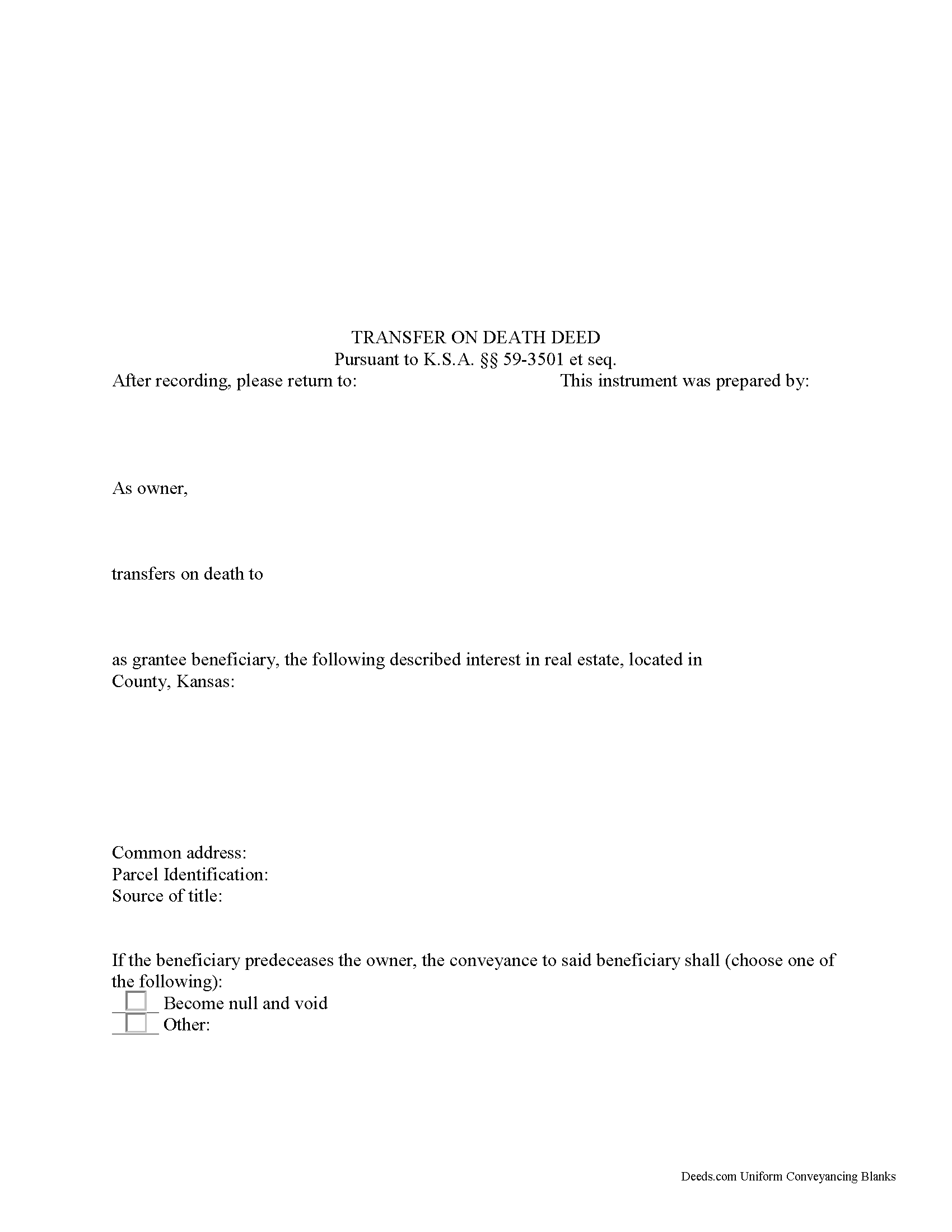Download Kansas Transfer on Death Deed Legal Forms

Kansas Transfer on Death Deed Overview

Kansas enacted its statutory transfer on death deeds in 1997. These nontestamentary, nonprobate conveyances are governed by K.S.A. 59-3501 (2012) et seq. Nontestamentary means that the transfer is not included in or affected by the owner's last will and testament. Nonprobate means that the property's change in title occurs outside the probate process.
Transfer on death deeds, when lawfully executed and RECORDED DURING THE OWNER'S LIFE, convey a land owner's interest in a specific piece of real property to a designated beneficiary after the owner dies. Until death, the owner retains absolute rights to and control over the property, including entering into agreements to rent, mortgage, or sell the property outright.
The deeds do not require any consideration from the beneficiary, nor do they demand that the beneficiary receive notice about his/her/their potential future interest in real estate. The owner may also change, revoke, or otherwise modify the terms of the transfer. In addition, the statute explains that a "subsequent transfer-on-death beneficiary designation revokes all prior designations of grantee beneficiary or beneficiaries by such record owner for such interest in real estate" (K.S.A. 59-3503(b)).
As with a transfer on death deed, all revocations or other changes to a recorded transfer on death deed may be made "at any time prior to the death of the record owner, by executing, acknowledging and recording in the office of the register of deeds in the county where the real estate is located an instrument describing the interest revoking the designation. The signature, consent or agreement of or notice to the grantee beneficiary or beneficiaries is not required" (K.S.A. 59-3503(a)).
Beneficiaries should be aware, however, that they take "the record owner's interest in the real estate at death subject to all conveyances, assignments, contracts, mortgages, liens and security pledges made by the record owner or to which the record owner was subject during the record owner's lifetime, including . . . claims of the state of Kansas for medical assistance, as defined in K.S.A. 39-702" (K.S.A. 59-3504(b)).
Overall, transfer on death deeds offer a flexible and useful tool to owners of Kansas real estate. Even so, there are benefits and drawbacks to this method of estate planning. Because each situation is unique, contact an attorney with specific questions or for complex situations.
(Kansas Transfer on Death Deed Package includes form, guidelines, and completed example)